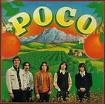Trick or Treat at the FCC

Today's FCC hearings on localism in media featured stellar testimony from a panel of witnesses nearly united in their belief that diversity in media ownership and community-centric broadcasting are of enormous public value. The hearings took place on Halloween, and, judging from the response of concerned citizens to the possibility of further consolidation, FCC Chairman Kevin Martin should be spooked.
Despite short notice and a very small venue, more than 150 citizens showed up at the FCC's doorstep. (Some as early as 5 and 6 in the morning!) Those who made it inside, including a panel of powerful witnesses, made it clear that media consolidation is not in the best interest of any community — be it rural or urban.
"A business model that shuts out local news and entertainment options in favor of homogenized content is detrimental to the public interest," said Bob Edwards, National First Vice President of the American Federation of Television and Radio Artists, and former host of NPR's "Morning Edition." Directly addressing the FCC Commissioners, he stated, "the health and robustness of American media depends on your actions."
The Rev. Jesse Jackson of the Rainbow Push Coalition also had strong words for the Commission. "For far too long, media policy has been made behind closed doors," he said. It's time to democratize the public airwaves. The FCC should serve the public, not profits."
Several panelists, including Kim Gandy, president of the National Organization for Women, spoke candidly about the importance of localism. "The programming needs of local communities are best served by local owners," she said. "It's hard to argue with the obvious." She also pointed out the appalling lack of diversity in the current media sphere, claiming, "the more consolidated the market, the less likely it is that there will be female or minority ownership."
FMC has extensively examined the effects of consolidation on the public airwaves, and has conducted original research which changed the debate about radio. Economic data from our 2003 and 2006 studies showed a massive and negative restructuring of radio and proved that the FCC's own studies following the 1996 Telecommunications Act did not accurately measure diversity or localism. Our 2006 Radio Study can be found here. You can also check out an Executive Summary of this report.
In 2006, FMC Executive Director Jenny Toomey was a witness at the FCC's hearing on media ownership in Nashville. She spoke about the radical transformation of the airwaves following the 1996 Telecommunications Act, and the resulting lack of diversity and localism on the dial. Of course, Jenny looked beyond terrestrial broadcasting and to the future, tying the negative affects of radio consolidation to the importance of net neutrality:
"If there is a silver lining to this cloud of failed radio policy, it will be the lessons that we apply to the debate over net neutrality and to structural decisions about the internet marketplace. Radio’s story has played a major role in spawning the movement against media consolidation. And concerns about access to the data used in the FCC's decision-making process have shown that the public needs more substantial and transparent information to monitor media industries. Never again should these decisions be made in the dark."
And they won't be, if today's cadre of concerned citizens, broadcasters, advocates and activists have anything to do with it.
Read the rest of Jenny's testimony here.
Learn more about today's FCC hearing at StopBigMedia.com.
Oh, and Happy Halloween!












